Sexting Panic
FEMINIST MEDIA STUDIES
Edited by Carol Stabile
SERIES EDITORIAL BOARD
Mary Beltrn, Department of Radio-Television-Film, University of TexasAustin
Radhika Gajjala, American Cultural Studies,
Bowling Green University
Mary L. Gray, Department of Communication and Culture, Indiana University; Senior Researcher, Microsoft Research
Bambi Haggins, Arizona State University, Tempe
Mary Beth Haralovich, University of Arizona, Tucson
Heather Hendershot, Massachusetts Institute of Technology
Michele Hilmes, University of WisconsinMadison
Nina Huntemann, Suffolk University
Elana Levine, University of WisconsinMilwaukee
Robin Means-Coleman, University of Michigan
Mireille Miller-Young, UC Santa Barbara
Isabel Molina-Guzman, University of Illinois at Urbana-Champaign
Lisa Nakamura, University of Michigan
Laurie Ouellette, Communication Studies, University of Minnesota
Carrie Rentschler, McGill University
Kim Sawchuk, Concordia University
Leslie Steeves, University of Oregon
Rebecca Wanzo, Washington University
Natalie Wilson, California State San Marcos
A list of books in the series appears at the end of this book.
Sexting Panic
Rethinking Criminalization,
Privacy, and Consent
AMY ADELE HASINOFF
UNIVERSITY OF ILLINOIS PRESS
Urbana, Chicago, and Springfield
2015 by Amy Adele Hasinoff
All rights reserved
Manufactured in the United States of America
1 2 3 4 5 C P 5 4 3 2 1
 This book is printed on acid-free paper.
This book is printed on acid-free paper.
Library of Congress Control Number: 2014958126
ISBN 978-0-252-03898-3 (hardcover)
ISBN 978-0-252-08062-3 (paperback)
ISBN 978-0-252-09696-9 (e-book)
Contents
Illustrations
Acknowledgments
I cannot possibly thank everyone who contributed to this book. But I will start at my current institution, the University of Colorado Denver, where the support at all levels has been exceptional, including a grant supporting the last stages of this project. My new Communication Department colleagues provided a wonderful intellectual space in which to complete this manuscript. Thanks to Sonja Foss for her generous and incisive feedback, and to Stephen Hartnett, Lisa Kernen, Sarah Fields, Michelle Mdal, Hamilton Bean, Brian Ott, Brenda J. Allen, Jim Stratman, Larry Erbert, Gordana Lazic, and Yvette Bueno-Olson, among others, for helpful comments, guidance, and a warm welcome. I thank a number of other UCD colleagues for valuable feedback on my final drafts: Sarah Tyson, Gillian Silverman, Lucy Mcguffey, Andy Rumbach, Carrie Makarewicz, Kelly Palmer, and Margaret Woodhull. Finally, thanks to a number of UCD and Denver friends who have offered crucial advice and support: Sarah Hagelin, Dawn Comstock, James Fiumara, Colleen Heineman, John Tinnell, and Marjorie Levine-Clark.
Carrie Rentschler introduced me to feminist media studies when I was an undergraduate student at McGill, and her research, mentoring, and teaching has been a model for me ever since. When I returned to McGill to work with her as a postdoctoral fellow, her brilliant insights and questions challenged me to develop this book into its current form. She also offered crucial professional support and made the Institute for Gender, Sexuality, and Feminist Studies a vibrant, welcoming, and exciting place to develop this project during my time at McGill. The Girlhood Studies symposium was a particular highlight, and I thank the participants for their comments, particularly Catherine Driscoll, Sarah Banet-Weiser, Marnina Gonick, Claudia Mitchell, and Caroline Caron. I also thank a number of other people connected to the IGSF, including Liz Groeneveld, Alison Fyfe, Samantha Thrift, Caili Woodyard, and Lena Palacios. The Art History & Communication Studies Department at McGill likewise offered a wonderful set of colleagues. I owe particular thanks to Jonathan Sterne for generously showing me how to take a broader view of technology and new media studies and for patiently providing answers to my endless questions and requests for advice. The writing group he organized was particularly fruitful, and I thank its members for their indispensible feedback: Dylan Mulvin, Li Cornfeld, Anna Candido, Lilian Radovac, and Max Ritts.
During my time at McGill, this project also derived huge benefits from conversations with many other colleagues including Darin Barney, Gabriella Coleman, Will Straw, Tina Piper, Becky Lentz, and Laila Parsons. Discussions with a number of other colleagues and friends based mainly in Ottawa, Toronto, and Montreal also played a vital role in this project, and I thank Kate Cairns for helpful comments on a number of drafts, Lara Karaian for her sexting research and wonderful in-depth conversations about the topic, Ummni Khan, Leslie Regan Shade, Tamara Shepherd, Nicole Cohen, Andrea Slane, Yasmin Jiwani, Rena Bivens, and Ian Kerr. Thanks as well to researchers in the United States and elsewhere for key suggestions and insights: Kate Crawford, danah boyd, Alice Marwick, Laura Portwood-Stacer, Fred Turner, Mary Beltran, Nora Draper, Karma Chvez, Rachel Hall, Yvette Taylor, Mary Celeste Kearney, Mara Mills, Mary Bryson, Anna Feigenbaum, Jessalynn Keller, and Jessica Ringrose. I also thank those who offered exemplary kindness and friendship: Maryam Ehteshami, Sherwin Tjia, Lana Goodrich, Robin Michaels, Sean Michaels, Miri Freidowitz, and Anne Rousselot.
I began my graduate studies at the Institute for Communications Research at the University of Illinois at Urbana-Champaign. There, and to this day, I benefited from Shoshana Magnets generous guidance, tremendous empathy, and delicious vegan cooking. I also thank members of reading and writing groups I participated in at UIUC, including Aisha Durham, Kevin Dolan, Carolyn Randolph, Michele Rivera, Myra Washington, Celiany Rivera-Velazquez, Jillian Baez, and Himika Battacharya. Other friends and colleagues connected to Urbana-Champaign likewise formed an important scholarly and social community, including Julilly Kohler-Hausmann, Kwame Holmes, Natalie Havlin, John Gergley, Anna Kurhajec, Ian Hartman, Desiree Yomtoob, Kelly Gates, Rachel Dubrofsky, Victor Pickard, Anthony Sigismondi, Melissa Prentice, Erica Alane Hill, Alice Filmer, Robert Smith, Sasha Mobley, Steven Doran, Shantel Martinez, Robert Mejia, and Meijiadai Bai.
Sarah Projansky guided my training at UIUC and provided uncannily insightful feedback. Her remarkable ability to understand and support my goals helped me move forward when it seemed impossible. Paula Treichlers exemplary feminist media studies scholarship, vital feedback, and challenging questions were also essential. A number of other UIUC faculty members shared their research with me and offered crucial advice and scholarly insights: Kent Ono, John Nerone, Shefali Chandra, Siobhan Somerville, Mimi Nguyen, Fiona Ngo, Norm Denzin, Cameron McCarthy, Lisa Nakamura, Angharad Valdivia, Isabel Molina Guzman, James Hay, Maria Mastronardi, and Ruth Nicole Brown.
Thanks to series editor Carol Stabile for supporting this project and to editor Larin McLaughlin and the staff at the University of Illinois Press for shepherding it through the process. I thank the Social Science and Humanities Research Council of Canada and the Fonds qubcois de la recherche sur la socit et la culture for financial support that had an immense impact on this project. Sincere thanks are also due to all the audiences who heard parts of this work and offered critical and often lively responses, especially at the National Communication Association, the National Womens Studies Association, the Association of Internet Researchers, the Canadian Communication Association, the Canadian Womens Studies Association, Concordia University, Carleton University, Eastern Kentucky University, and the University of Wisconsin Madison. Thanks as well to editors and reviewers at


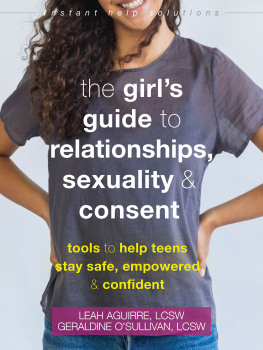
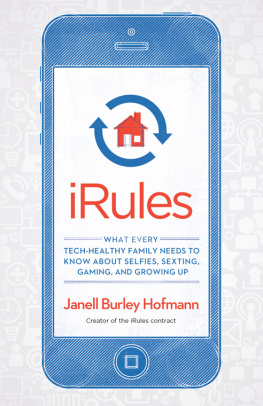
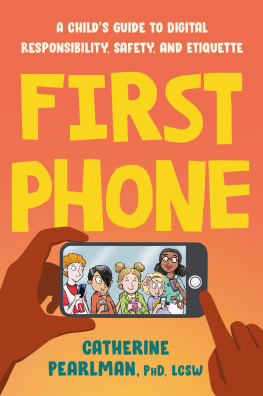
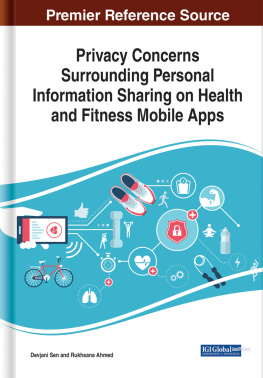
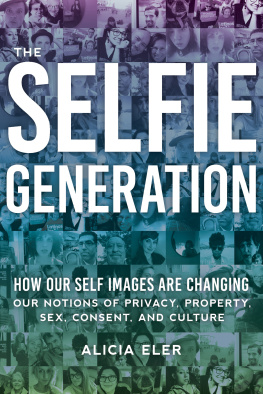
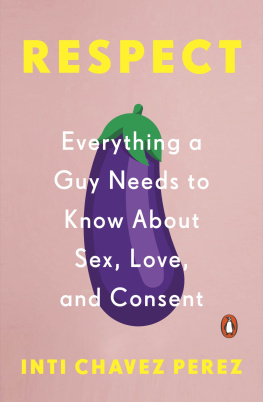

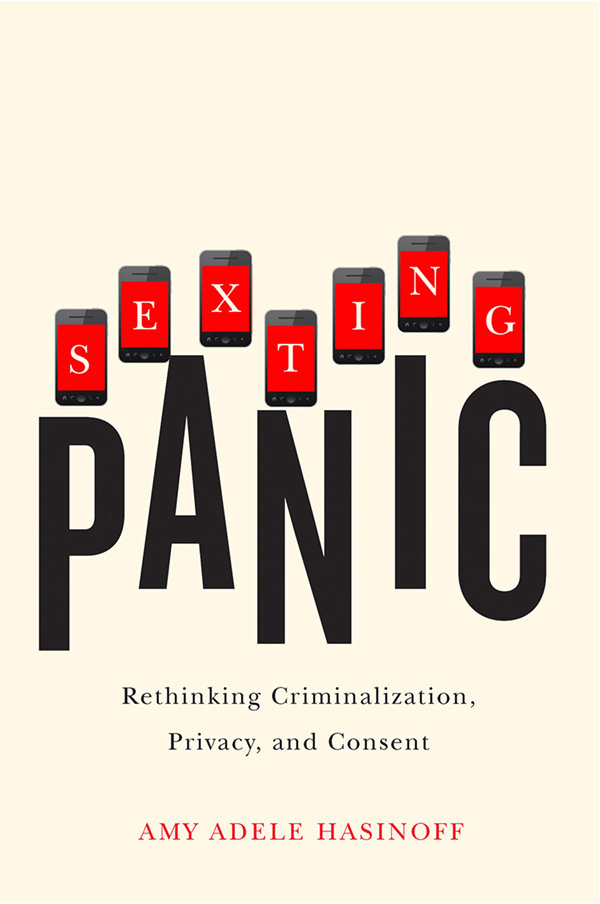
 This book is printed on acid-free paper.
This book is printed on acid-free paper.